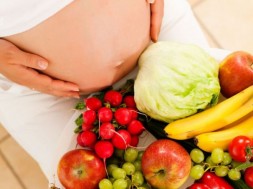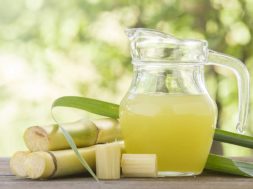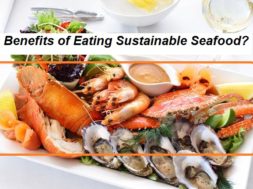Expecting women require more protein, iron, foliate and iodine but only a small boost in energy (kilojoules). Folic acid supplements prior to and after conception could decrease the risk of neural tube flaws such as spina bifida. Little regular treats may help nausea or morning health issues. Drinking alcoholic beverages prenatal might affect your coming child.
Good nourishment during pregnancy can aid to keep you and your developing baby healthy and balanced. The necessity for certain nutrients, such as iron and foliate, is raised at this time yet just a small amount of added power (kilojoules) is needed.
If you are pregnant, an excellent technique is to eat to satisfy your hunger and remain to oversee your weight. A normal weight gain over the course of a pregnancy is around 10- 13kg for females that were a healthy and balanced weight prior to conception.
An assorted diet plan typically provides our bodies with enough of each vitamin and mineral daily. However, expectant women might need supplements of particular supplements or minerals. Be recommended by your medical professional prior to taking supplements.
Healthy and balanced foods for pregnant women
It is important to select a large range of foods to guarantee the healthy necessities of both mom and child are satisfied.
Try to consume:
Great deals of fruit and vegetables, wholegrain breads and cereals.
Modest quantities of low-fat dairy products meals and lean meats.
Small amounts of meals tall in fat, glucose and salt.
Lean meat, poultry and fish (make certain it is low in mercury).
Dried grains and lentils.
Nuts and seeds.
Green leafy vegetables.
Folic acid (foliate) and pregnancy.
Foliate (referred to as folic acid when contributed to meals) is a B-group vitamin found in a selection of foods. Foliate demands rise substantially in pregnancy so females ought to intend to eat at least 600mcg (micrograms) of foliate from their normal daily diet.
As well as a healthy diet plan, it is recommended that females intending a pregnancy take an extra 400mcg of folic acid every day for a month previously and 3 months after fertilization. This could be taken as a supplement or through fortified foods, (food to which foliate has actually been added throughout production). Foliate taken over this duration can stop up until seven from 10 cases of neural tube flaws.
All wheat flour used in bread making in Australia should now have folic acid (with the exemption of flour utilized in ‘natural’ bread). Three pieces of fortified bread (100g) has an average of 120mcg of folic acid.
Morning meal cereals and fruit juices have folic acid added.
Foliate in your meal.
Superb food sources of foliate include:
Asparagus.
Bran scales.
Broccoli.
Capital grows.
Chickpeas.
Dried grains.
Lentils.
Spinach.
Very good meals sources of foliate feature:.
Cabbage.
Cauliflower.
Leeks.
Oranges.
Orange juice.
Parsley.
Peas.
Wheat microorganism.
Wholegrain bread.
Excellent meals resources of foliate consist of:
Hazelnuts.
Vegemite.
Parsnips.
Potato.
Salmon.
Strawberries.
Tomato.
Unsalted peanuts.
Pines.
Although liver is high in foliate, it is not recommended to women that are, or could be pregnant, due to its higher vitamin A material.
Iron and Maternity.
Maternity boosts the demand for iron in the diet plan. The developing fetus draws iron from the mother to last it through the very first 5 or 6 months after childbirth so a female has actually a boosted demand for iron during pregnancy.
Iron losses are reduced during pregnancy during pregnancy because the woman is not menstruating and so sheds much less iron from menstruation blood loss. It is useful to like meals that excel sources of iron in the diet plan each day (for instance, red meat) and to have meals that excel resources of supplement C (like oranges) to help take in the iron.
The advised day-to-day intake (RDI) of iron prenatal is 27mg a day (9mg a day more than that for non-pregnant women). The amount required depends on the amount of iron the woman has ‘kept’ in her physique before pregnancy. If your iron stores are low, you may have to turn even more from supplements. It is essential to discuss your requirement for supplements with your doctor, as iron could be harmful (toxic) in big quantities.
Iodine and Pregnancy.
Iodine is a crucial mineral needed for the production of thyroid gland bodily hormone, which is necessary for development and development. Insufficient iodine intake prenatal improves the threat of psychological impairment and cretinism in the newborn.
Foods that are good sources of iodine include fish and shellfish and algae (liking nori and kelp), eggs, meat and milk products. Females that are expectant should likewise utilize iodized table salt when food preparation or including sodium to meals.
As a result of the re-emergence of iodine insufficiency in Australia, iodized salt is now included in all commercially offered bread in Australia and New Zealand with the exception of natural and unleavened bread.
Vitamin A and Pregnancy.
Although vitamin A demands do boost prenatal, vitamin A supplements are hardly ever advised for pregnant women. This is because an extreme consumption of vitamin A could cause childbirth deformities.
The best means to increase your consumption of vitamin A, if it is reduced, is with meals resources like milk, fish, eggs and margarine.
Multivitamin supplements and pregnancy.
Multivitamin supplements may be suggested for the following teams of expecting women:
Vegetarians.
Teens that could have an inadequate food intake.
Material abuses (of medications, tobacco and liquor).
Overweight pregnant women that are restricting their power consumption to prevent sizable weight gains.
Constantly be encouraged by your physician before taking vitamin or mineral supplements.
There is no necessity for additional calcium prenatal.
Until 2006, Australian dietary suggestions recommended raised calcium consumption during pregnancy and breastfeeding. This suggestions has because been modified. Although there is a large ‘shift’ of calcium to the child throughout the third trimester of pregnancy (as it begins to establish and reinforce its bones), the mom’s boosted capability to take in dietary calcium makes up for this reduction without the demand for extra consumption.
The suggested nutritional consumption for non-pregnant females (1,000 mg a day for females matured 19- FIFTY years and 1,300 mg a day for adolescents or those aged over 51) others the same prenatal and breastfeeding. Dairy meals (such as milk, cheese and yoghurt) and calcium-fortified soymilk are exceptional diet resources of calcium.
Consuming for two.
There is no have to consume even more food during pregnancy. It is advised that for the first trimester, a woman’s energy (kilojoules, kJ) consumption must remain about the very same as it was prior to the pregnancy. Throughout the 2nd and 3rd trimesters, electricity needs need to enhance by about 600kJ a day. Improving fruit consumption to 4 offers daily (from the suggested two serves for non-pregnant women) will certainly offer all the additional power required.
The hazards of weight loss while pregnant.
Some women fear the additional weight gain of maternity and choose to consume sparingly to avoid applying health fat. Limited consuming or collision weight loss in any type of kind while expectant can seriously endanger your health which of your child.
Maternity in Teenage years.
Pregnant adolescents need additional nutrients than adult women do since they are still growing themselves. Teenagers may bring to life smaller infants since they are competing with the increasing fetus for nutrients.
Chlorosis is much more common among adolescents compared to older females are. Calcium consumption is also crucial since girls have actually not yet reached their top bone mass and inadequate calcium consumption might enhance the danger of osteoporosis establishing later in life.
Nausea and vomiting prenatally.
Nausea or vomiting and throwing up, specifically ‘early morning sickness’, prevail during pregnancy- particularly in the very first trimester. Small carbohydrate snacks (a sandwich or fruit) every two to three hours might give some comfort.
The following tips may also assist:
Consume some dry bread, biscuits or cereal prior to rising in the morning. Get up slowly, steering clear of sudden motions.
Beverage fluids in between rather than with dishes to avoid bloating as this can cause vomiting.
Avoid large meals and greasy, strongly spiced foods.
Suck something sour like a lemon.
Unwind remainder and enter the fresh air as long as feasible. Try to keep areas well aerated and odor cost-free.
Slowly sip a carbonated drink when feeling nauseated.
Try meals and drinks containing ginger as these occasionally relieve nausea or vomiting.
Pyrosis (heartburn) and Pregnancy.
Heartburn is common in pregnancy because, as the child expands, there is even more stress on the abdominal areas. Little, regular meals might be much better than large meals.
Attempt to stay clear of:
Consuming behind time during the night.
Flexing, lifting or resting after meals.
Extreme consumption of tea or coffee.
You might likewise like to attempt sleeping with your bed head increased a few inches. You could do this by placing a folded covering or cushion under your bed mattress.
Alcoholic beverages prenatal.
There is no well-known entirely secure level of liquor usage for women that are pregnant. Consuming alcoholic beverages prenatal enhances the risk of miscarriage, low childbirth weight, genetic defects and effects on the infant’s cleverness.
Australian Alcoholic beverages Standards encourage females that are pregnant or who are considering maternity that they:
Consider not drinking whatsoever.
Need to never become intoxicated (intoxicated).
If they prefer to consume, must have much less than seven typical beverages over a week and just 2 basic beverages on any someday (at the very least 2 hrs apart).
Ought to note that the danger is greatest in the earlier phases of pregnancy, consisting of the moment from conception to the initial missed period.
A typical beverage contains 10g of liquor.
Listeria infection and Pregnancy.
Listeria infection, or listeriosis, is a health problem often created by consuming food polluted with germs called Listeria monocytogenes. Healthy individuals might experience no unwell effects from listeria infection at all; however, the dangers are sizable for pregnant women. The greatest hazard is to the coming infant, with raised risk of miscarriage, stillbirth or untimely labor. A listeria infection is conveniently handled with anti-biotics, but deterrence is ideal.
Some meals are much more prone to contamination with listeria than others are. Exclude these foods from your meal if you are expectant:
Soft cheeses, such as brie, camembert and ricotta- these are secure if offered cooked and warm.
Precooked or pre-prepared chilly meals that will not be reheated- for instance, pre-prepared tossed salads, pate, quiches and delicatessen meats like ham and salami.
Raw fish and shellfish such as oysters and sashimi or smoked fish and shellfish such as salmon (canned ranges are safe).
Unpasteurized foods.
Soft-serve ice cream.
The organism that induces listeria infection is damaged by heat, so properly prepared meals are not a risk.
Salmonella and Pregnancy.
Salmonella is a cause of food poisoning that can trigger miscarriage. The most likely resources of salmonella are raw eggs and undercooked meat and chicken.
Great food health.
Great meals health is the most effective method to decrease the threat of salmonella and listeria infections. Recommendations like:
Always wash your hands before and after preparing meals.
Keep your kitchen surfaces clean.
Do not allow raw meals contaminate prepared food.
Wash fruit, veggies and salad before eating.
Prepare meals completely.
Keep pets away from kitchen surface areas.
Put on rubber gloves when dealing with kitten litter holders or gardening.
Shop meals at appropriate temperatures.
Mercury in fish.
It is suggested that expectant women consume 2- 3 serves of fish weekly for the good health of themselves and their establishing infant. However, expecting females or women intending to become pregnant within the next six months ought to be careful regarding which fish they eat. Some types of fish have high levels of mercury, which can be hazardous to the developing fetus.
Expectant women must:
Restriction to one serve (150g) per fortnight- billfish (swordfish, broadbill and marlin) and shark (flake), without various other fish consumed in that fortnight.
Restriction to one offer (150g) weekly- orange roughy (deep sea perch) or catfish, with no various other fish eaten that week.
Eat 2- 3 serves per week- of other fish or fish and shellfish (as an example, salmon or tuna).
Note: 150g amounts around two frozen crumbed fish sections.
Ladies should not be worried if they have had the strange dish of fish with tall degrees of mercury. It is just a possible problem when that type of fish is consumed on a regular basis, which triggers a build-up of mercury in the mother’s blood.
Where to get assistance.
Your doctor.
Midwife.
Obstetrician.
Dietitians.
Things to bear in mind.
An expectant woman needs to increase her vitamins and mineral intake, as opposed to her kilojoules consumption.
Pregnancy makes extra demands nutrients featuring iron and foliates.
Good food health is specifically vital prenatal.
You might also want to know:
Baby due day.
Calcium.
Need to know even more?
Content on this Internet site is provided for education and info functions only. Information concerning a treatment, service, item or procedure does not signify recommendation and is not planned to change help from your medical professional or various other signed up wellness expert. Visitors ought to keep in mind that, in time, currency and completeness of the information might alter. All individuals are urged to consult a healthcare expert for medical diagnosis and answers to their medical concerns.





